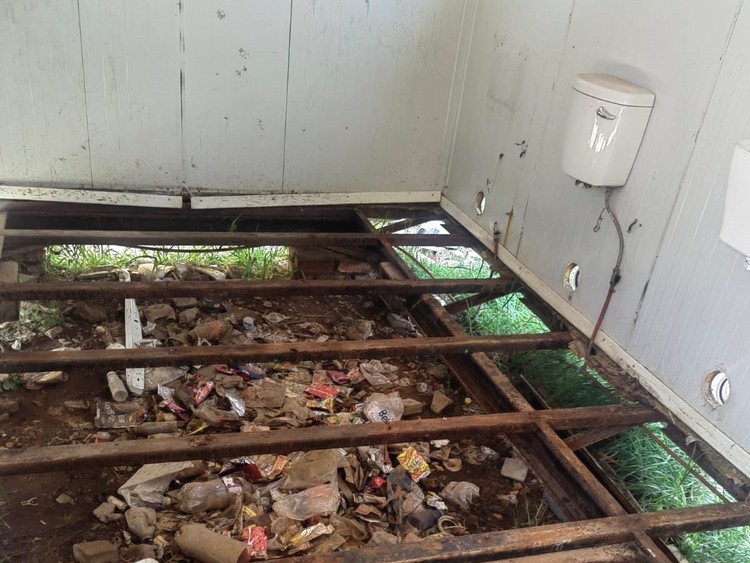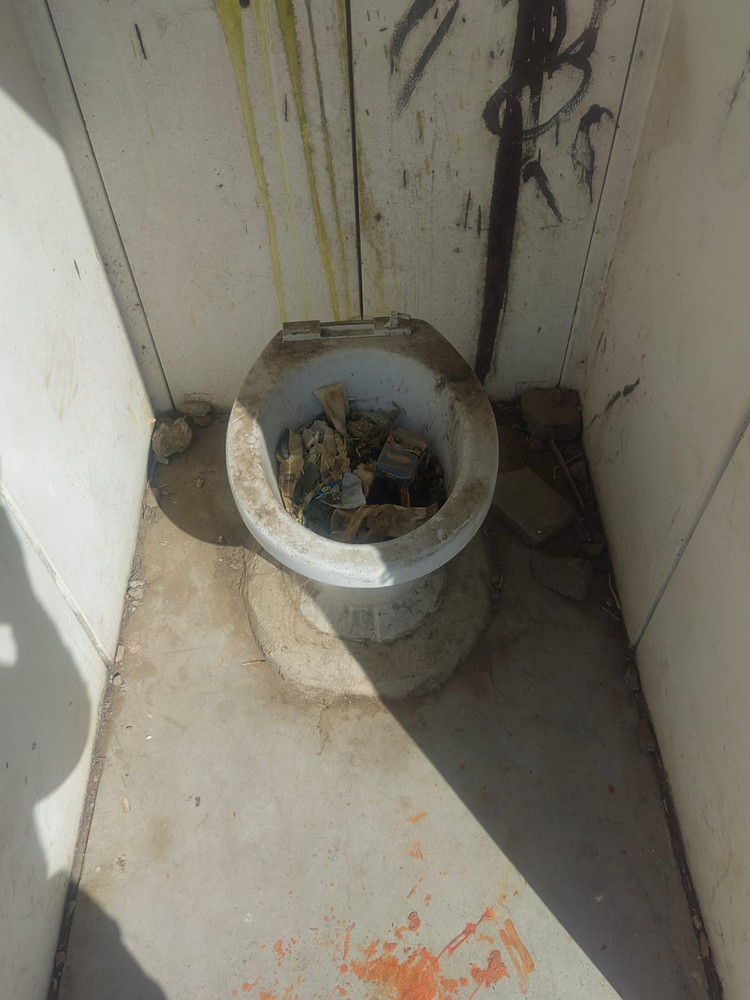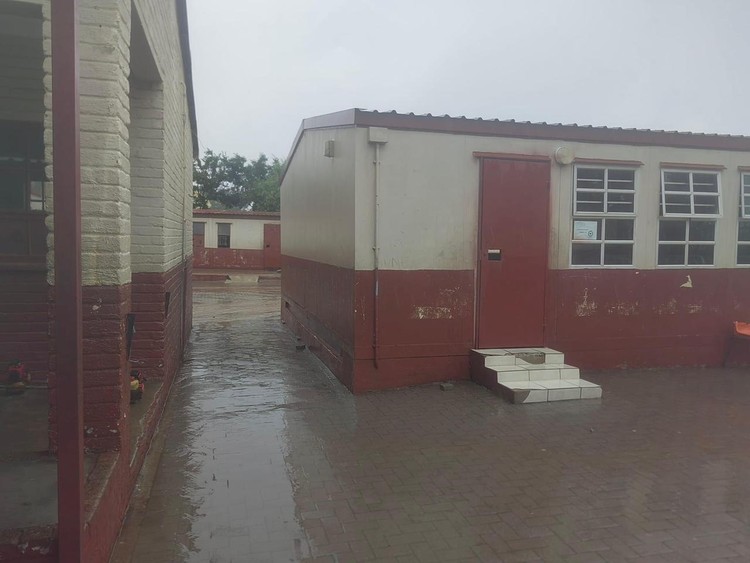Anger at Panyaza Lesufi for failing to fix Roodepoort school for years
The department committed to replacing the school with a brick-and-mortar structure more than five years ago.
This is one of the broken ablution blocks at Durban Deep Primary near Roodepoort. The Gauteng education department had promised that a new school would be built years ago, but this has not yet happened, and children are forced to learn in decaying classrooms. Photos: Silver Sibiya
- Young learners at Durban Deep Primary near Roodepoort are forced to contend with decaying classrooms, deplorable toilets and no stable electricity supply at the school.
- The school is in an isolated area near an abandoned mine.
- The DA in Gauteng has issued scathing statements against the Education Department and MEC for “misleading the public by claiming that Durban Deep Primary school would be completed by the end of March 2023”.
- The party says that the department had committed to replacing the school with a brick-and-mortar structure more than five years ago.
Parents at Durban Deep Primary near Roodepoort in the west of Johannesburg say sewage has been flowing into the schoolyard where the children play.
They believe the Gauteng Department of Education has turned a blind eye to serious issues at the school which include the deplorable state of the toilets and a lack of electricity.
The school has more than 1,200 learners.
The school’s prefabricated classrooms, which were donated by a mine, have begun to decay and are no longer able to accommodate the school’s growing numbers.
When GroundUp visited the school earlier this week, some toilets were dirty and full. Some didn’t have doors. Foul smelling puddles surrounded the toilets. Some of the classrooms also had broken windows and rusted exteriors.
The department was meant to build a new school for Durban Deep Primary years ago. There are currently shack dwellers living on the land where the new school is to be built.
In March 2023, the DA in Gauteng issued a scathing statement accusing MEC for Education Matome Chiloane of misleading the public by claiming that Durban Deep Primary school would be completed by the end of March 2023.
“Durban Deep Primary School infrastructure is dilapidated, the toilets are collapsing, and there is no privacy. More than 1,200 learners are congested in an old mining dump site. The department committed to replacing the school with a brick-and-mortar structure more than five years ago. To date, nothing has happened. According to the department’s third quarter report, the MEC indicated that Durban Deep Primary is among 84 schools to be replaced,” the statement read.
A dirty toilet at Durban Deep Primary.
The DA then visited the school in November, and discovered that “construction on the new school has not yet commenced as there are still people living on the land earmarked for the new school”. The DA confirmed that the school uses generators because there is no proper supply of electricity.
Meanwhile, parent Maria Gabrielle Mpipa said she worries about her child’s safety and hygiene while at school. “My child rushes to the toilet every time he comes from school but I didn’t understand why until I went to the school.
“There is sewage leaking from the toilets and there are only three working taps. That’s not enough for so many children. They should not be queuing to drink water,” she said.
Another parent, Gomolemo Bonokwane said, “It’s not right for a child to use a dirty toilet. We don’t want schools with broken windows.”
Ward 127 Councillor Lwanda Ncibane Bini said, “The containers are decaying because of the water leaking from the toilets and the illegal mining in the surrounding area. The last time we asked about the electricity, they said there are no supply cables. The big generator using diesel is not working.”
He said in 2017 Premier Panyaza Lesufi, who was then MEC for Education, first promised to build a new school. “Four years ago the people of Matholeville had a big protest and Lesufi came to make more promises. He said what is stopping them from building the school is the process of evicting people from the land.”
Questions sent to the Gauteng Department of Education on Tuesday, as well as follow-up calls, went unanswered by the time of publication.
Parents are complaining that most of the classrooms at Durban Deep Primary are made of prefabricated material which is now decaying.
Support independent journalism
Donate using Payfast

Don't miss out on the latest news
We respect your privacy, and promise we won't spam you.
Next: A Quiet Lion: A Tribute to land activist Moss Sekobane
Previous: ICJ ruling is a victory for human rights and justice
© 2024 GroundUp. This article is licensed under a Creative Commons Attribution-NoDerivatives 4.0 International License.
You may republish this article, so long as you credit the authors and GroundUp, and do not change the text. Please include a link back to the original article.
We put an invisible pixel in the article so that we can count traffic to republishers. All analytics tools are solely on our servers. We do not give our logs to any third party. Logs are deleted after two weeks. We do not use any IP address identifying information except to count regional traffic. We are solely interested in counting hits, not tracking users. If you republish, please do not delete the invisible pixel.



